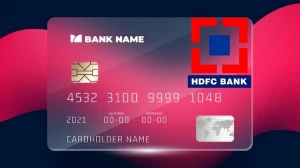
- Home »
- Credit Card »
- How Many Credit Cards Should I Have? Will More Than One Credit Card Help My Credit Score?
How Many Credit Cards Should I Have? Will More Than One Credit Card Help My Credit Score?
While it depends on individual preferences and financial habits, maintaining around two to three credit cards acquired gradually over time is often advisable to balance benefits and responsible credit usage.
Published Aug 03, 2023 | Updated Dec 12, 2023 | 📖 4 min read
How Many Credit Cards Should I Have?
Determining the optimal number of credit cards is a personal financial decision influenced by various factors. While there's no fixed rule, maintaining two to three credit cards is often considered a prudent approach. The first card could serve as a starter to establish a credit score and history. This foundational card is usually a basic, entry-level option that helps individuals build a positive credit profile.
After establishing credit, acquiring a rewards card is the next step. This type of card offers better cash-back or travel miles benefits compared to the basic card. It's advisable to wait at least six to 12 months after opening the first credit card before applying for a rewards card. The third card, if desired, can be another rewards card that complements the earning rates or benefits of the initial two cards.
The key is to acquire credit cards gradually over time, avoiding opening multiple accounts in a short span, which could potentially impact credit scores. Personal spending habits, income levels, and lifestyle needs will play a significant role in determining the right number of credit cards for an individual.
Also Read>> What is a Credit Card? How Does a Credit Card Work?
How Many Credit Cards Are Considered Excessive?
Acquiring multiple credit cards at once, especially for the sake of welcome bonuses with subsequent cancellations, can have drawbacks. This practice, known as churning-and-burning, may impact your credit score and could lead to denials for new card applications, even if your credit score remains strong.
It's essential to carefully evaluate each card's benefits, such as no foreign transaction fees, travel rewards, or cash back on specific categories, and consider your actual needs before applying for multiple cards simultaneously.
Will More Than One Credit Card Help My Credit Score?
The number of credit cards needed to build credit depends on personal financial management. A primary card for everyday purchases provides a steady way to build credit over time. However, if you have goals for significant investments and want to boost your credit quickly, adding multiple cards, especially those with specific loyalty programs, can be beneficial.
This approach allows for more organized tracking and categorization. While you only need one credit card to start building credit, having more and using them responsibly presents opportunities to earn points and gradually increase your credit line.
MarketsHost warmly invites you to an immersive experience, where we unveil the intricacies of Credit Cards, enabling you to make informed financial decisions with confidence.
Is It Good to Have More Than One Card?
Having more than one credit card can be beneficial for increasing your credit score and earning additional rewards, provided you consistently make payments on time and in full each month. However, it comes with risks, especially for individuals prone to accumulating debt. The impact on your credit score, particularly the FICO score, is influenced by factors such as payment history, amounts owed, length of credit history, new credit accounts, and types of credit used.
On the positive side, having multiple credit cards can raise your total credit limit, reducing the percentage of credit used, a crucial factor in determining your FICO score. This diversity in credit limits can be advantageous in managing debt. Conversely, opening new credit cards in a short timeframe may negatively impact your credit score, constituting about 10% of the FICO score. To mitigate this, it's advisable to wait at least six months, preferably a year, before adding a new card to your credit portfolio.
What Are the Pros and Cons of Having Many Credit Cards?
Considering whether to have multiple credit cards? Let's break it down. On the plus side, having more cards means you can enjoy various rewards and have a backup if one card has issues. But, on the downside, it can get confusing, and if you're not careful, you might end up in debt, affecting your credit score. Weighing these pros and cons can help you find the right balance for your financial journey.
Pros of Having Many Credit Cards
- Leverage various rewards programs for optimized benefits in specific spending categories.
- Ensure convenience and peace of mind with an alternative card in case of issues, especially during travel.
- Spread transactions across multiple cards to minimize vulnerability and enhance protection against fraud.
Cons of Having Many Credit Cards:
- Managing multiple cards adds complexity, making it challenging to track bills and maintain timely payments.
- Increased risk for overspending, particularly for those already struggling with credit card debt.
- Opening multiple credit lines quickly may result in a temporary drop in credit scores, impacting the perception of financial stability.
How Many Credit Cards Should I Have - FAQ
1. How many credit cards should I have?
The ideal number varies based on individual needs and financial capability. Having at least one credit card can be beneficial, but avoid accumulating too many if you can't manage them responsibly.
2. Can having multiple credit cards improve my credit score?
Yes, if managed well. Multiple cards can diversify your credit mix and increase your credit limit. But remember to make on-time payments and avoid excessive debt.
3. What are the advantages of having multiple credit cards?
Multiple cards can offer higher rewards, backup options, and lower credit utilization. However, be cautious of annual fees and potential overspending.
4. How can I manage multiple credit cards effectively?
Utilize different cards for specific categories, pay off balances promptly, and stay organized with due dates and spending.
5. Is it okay to live without a credit card?
Yes, it is possible, but having one can help establish credit history and provide convenience in certain situations. Consider alternatives like cash or debit cards.




